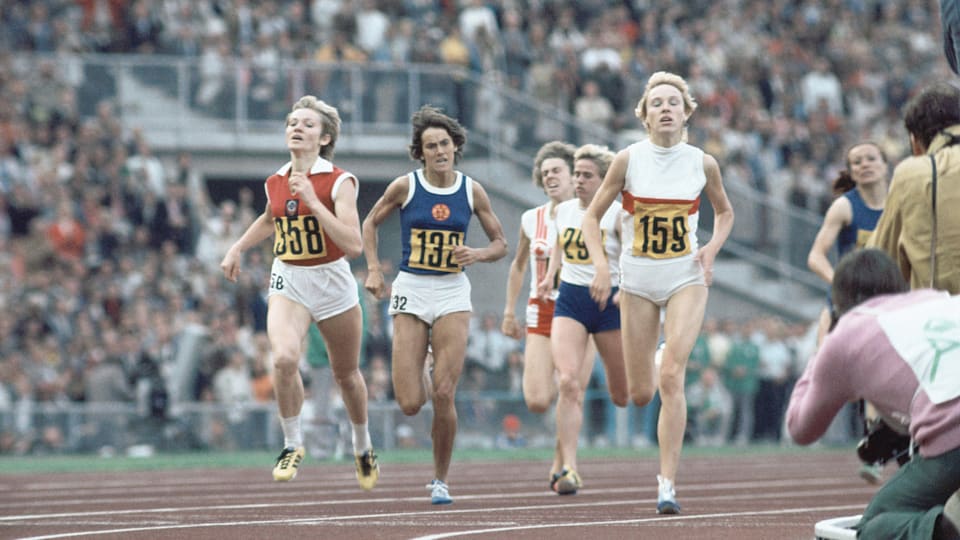Home favourite Falck puts on unstoppable 800m show
The women's 800m turned out to be the race where the favourites struggled to live up to some weighty expectations. Bulgaria's Vasilena Amzina was the world's second fastest runner coming into the event but she collided with another runner in her heat and fell to the track. She got up bravely and finished with determination in her eyes and blood coating her face, but the damage had been done and Amzina failed to qualify.

Meanwhile, the defending champion Madeline Manning, like many others in the competition, was running with an eye on conserving energy. She slowed at the finish of her heat, apparently assured of qualification, but it turned out to be a profound error. She was passed on the line and failed to qualify for the final.
Another Bulgarian suddenly became the favourite. Svetla Zlateva set an Olympic record in the heats and looked strong in the final. She hit the front inside the first 200m but then relinquished the lead to Ileana Silai, who was first at the bell. Zlateva waited for her moment and then, with 250m to go, seized the lead.
But there was another contender - a home favourite, no less. Hildegard Falck, a 23-year-old schoolteacher, who had emerged into the global spotlight over the previous couple of years.
In July 1971, Falck had become the first woman to run the 800m in under two minutes, smashing the world record with a run of 1:58.5secs. She had waited and waited during the final and now her patience began to pay off. With less than a quarter of the race left to run, Falck took the lead and burst two metres ahead, cheered on by the crowd.
Back came another contender, though, this time the Lithuanian runner Nijolė Sabaitė, representing the Soviet Union, and coming up on the outside of Falck with the finishing line in sight. She closed and closed, but couldn't deny Falck victory, the German winning in a new Olympic record time.
